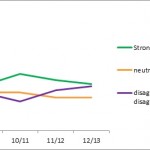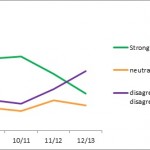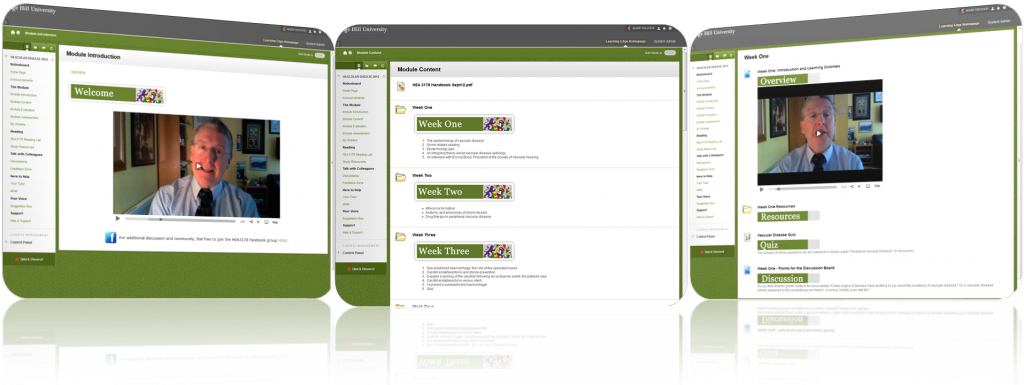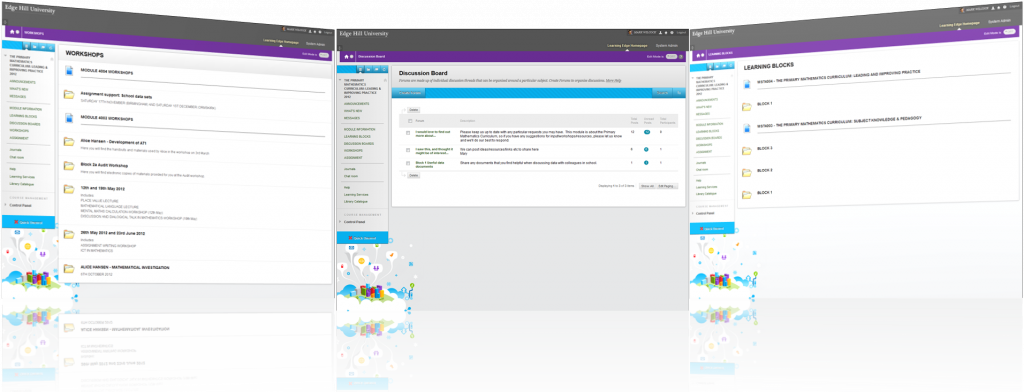
-
Can someone explain what’s going on here?
The 5th EHU Student eLearning survey still has just over a week or so left to run but I thought I’d share with you an interesting and unusual finding from the large number of responses we have received so far.
In the survey we ask students to respond to the statements On/off campus I sometimes have difficulties accessing Learning Edge and not surprisingly a lot of students agree or strongly agree. The responses to these statements are important measures of how well or otherwise the Learning Edge systems and student support are performing. They are also indicators of how effective Learning Services have been in identifying and resolving Learning Edge technical issues. So it is reassuring to note that since we started collecting data on this question and used the feedback to inform improvements, that the numbers of students experiencing technical difficulties have declined year on year.
Which brings me to the interesting and unusual finding illustrated in the two graphs below (click on a chart to make it bigger).
On campus I sometimes have difficulties accessing Learning Edge Off-campus I sometimes have difficulties accessing Learning Edge This positive trend shows students are experiencing significantly fewer technical difficulties with Learning Edge both on and off campus but surprisingly the most dramatic improvement is the reduction of off-campus technical difficulties. This reduction is even more marked in the current student responses and begs the question ‘What is going on here: why isn’t the rate of improvement as dramatic with on-campus technical difficulties?’
Obviously, we’ll be investigating this anomaly in our continuing efforts to improve the student experience of Learning Edge. As a starting point, it would be really helpful if student readers could use this blog’s comments facility to provide some pointers by letting me know where, when and on what devices you tend to experience Learning Edge technical issues. It would also be helpful to learn more about what types of technical difficulties are experienced both on- and off-campus.
Finally, if you have not yet had your say about your experience of technology to support your learning at Edge Hill, there is still just over a week of the EHU Student eLearning Survey left to go. Give us your feedback and enter the prize draw for £50 and 2 x £25 Amazon vouchers. Every 20th participant also wins an attractive 1G USB wristband.
Lindsey Martin Assistant Head of Learning Services (Learning, ICT and Media Technologies)
-
Viva Las Vegas…The 2013 Blackboard Exemplary Course Program is now open!
Have you got a well-designed Blackboard module area that you’d like to gain recognition for? Since its launch in 2000, Blackboard opens its Exemplary Course Program (ECP) each year. The aim is to support the use of e-Learning technology more effectively by identifying and disseminating best practices for designing engaging online courses.
Using Blackboard’s rubric, tutors are able to evaluate how well their own course(s) conform to the best practices for Course Design, Interaction & Collaboration, Assessment and Learner Support before program entry. Courses can then be submitted to the program, which are reviewed by a team of peer reviewers and then by the directors of the Exemplary Course Program. If successful your course will receive recognition internationally from Blackboard and as part of the accomplishment you will also be invited to attend Blackboard World in Las Vegas, July 2013.
This year is the debut appearance for Edge Hill University with the institution submitting its first ever courses to the program, with one entry from the Faculty of Health and two entries from the Faculty of Education.
From the Faculty of Health, the online module ‘Vascular Disease Management’ is to be submitted for review. Senior Lecturer Chris Jones has been acknowledged for his use of online learning technology, design quality and communal interaction. Chris was previously acknowledged for his e-learning course design last year when he was invited to showcase his module to the European Society for Vascular Surgery (ESVS) in Bologna, Italy.
From the Faculty of Education, the Mathematics Specialist Teacher Programme (MaST) will submit a module from their ever successful MaST course. The MaST module areas within Blackboard already have various exemplar design features and many signs of best practices within e-learning which already measure strongly against the Blackboard ECP rubric.
Also from the Faculty of Education, the collaboration between the NHS North Western Deanery and Edge Hill University in 2009 resulted in the Postgraduate Certificate in Workplace-Based Postgraduate Medical Education and has so far seen over a thousand students complete the blended learning course. The Clinical Education programme has always been a trailblazer in online learning and the past few years have been no exception with positive results in using Blackboard Mobile to accent the traditional PC-based interface. Using online discussion forums to help bring together distance students, an aesthetic interface and innovative use of the Blackboard tools the course ticks ‘all the boxes’ from the rubric.
Whether the submissions “win” or not, the fundamental aspect of receiving detailed feedback and insights to course recognition is always an investment worth making. Participation in the program and the value of iterative improvements to our VLE module areas is an accomplishment in itself.
Winning submission(s) are selected and notified during May 2013 and let’s hope Edge Hill University receives a number of Exemplary Course Awards!
If you have any questions or would like to participate in next year’s Blackboard ECP program please contact [email protected]
Mark Wilcock
Learning Technology Development Officer







